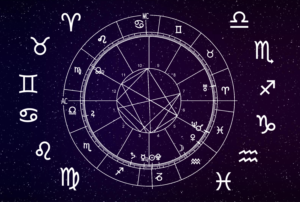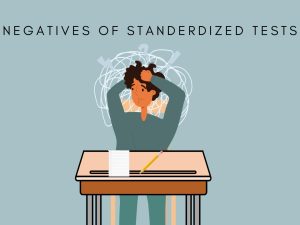Breaking down the toxicity of social media
Guest writer Caroline Rhoad speaks up about the dark side of social media
May 5, 2023
Anytime I hear an adult ramble on about how our phones are so unhealthy for us, I usually roll my eyes and continue to scroll on Instagram. I’ll admit it, I spend about six hours a day on my phone watching TikTok and communicating with my friends on Snapchat or other social media platforms. While social media is great for staying in touch with old friends, or keeping up to date with the latest trends, it also has many negative factors. This leads to the ultimate question: is social media really worth it?
Mental health is drastically affected by social media. As teenagers interact with one another online, some ideas passed along are not exactly healthy. Noticeably on TikTok, people on the platform tend to normalize and glorify mental disorders such as anxiety and depression. I have seen countless videos where someone shares these feelings, and the comments are flooded with people agreeing or laughing at others’ traumas. This environment can make someone identify their feelings as valid, but can also make others feel as if they are unimportant.
In one instance, a girl on TikTok shared that she feels like she lives the same day every day. She expressed how when she wakes up, she dreads having to get through the day ahead of her. Viewers finding a relation to those feelings would discover a comment section filled with people agreeing and sharing their similar experiences, thus, making them believe that these feelings were completely normal. Viewers who find themselves relating to these types of posts should check-in with friends. Are those feelings short-lived rather than persistent? It is important to realize that some struggle with this intensity for a long period of time. If those feelings are persistent it could be of major assistance to seek a trained professional. It is important to keep in touch with your mental health and to know when to ask for help.
Another issue caused by social media is constant comparison. According to the Pew Research Center, nearly seven-in-ten Americans use social media, with it especially popular among younger adults, as 86 percent of them are active online. Many teenagers find themselves jealous of the lives they see portrayed online. This social comparison can impact our mental health in many ways. The Jed Foundation shared that increased depression, decreased overall well-being, poor body image and eating disorders can all be an outcome of social comparison. What teenagers need to keep in mind is that the person they envy is more of a character than an actual human being. Influencers choose to only share certain aspects of their lives. People will view the exciting and superior parts rather than the relatable and rough parts. Social media platforms are a perfect place for individuals to provide this misinformation and impossible standards.
It is unsafe to be sucked into the toxicity of social media as it conveys threatening points of view and encourages harmful thoughts. While it can be great to communicate with friends and express yourself, it can also be damaging to people. If we can learn to identify these red flags in the future and realize when to take a break from social media, I believe this would help improve one’s mental health. It is important to keep in touch with your emotions while being active online. Remember that these negative ideas can hurt you, and do not be afraid to ask for help, whether it’s from your friends, family, or a trained professional.









